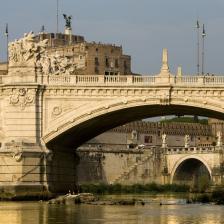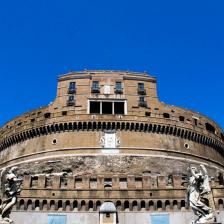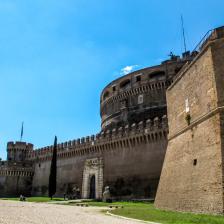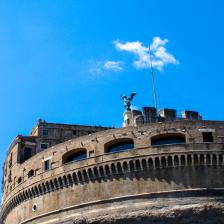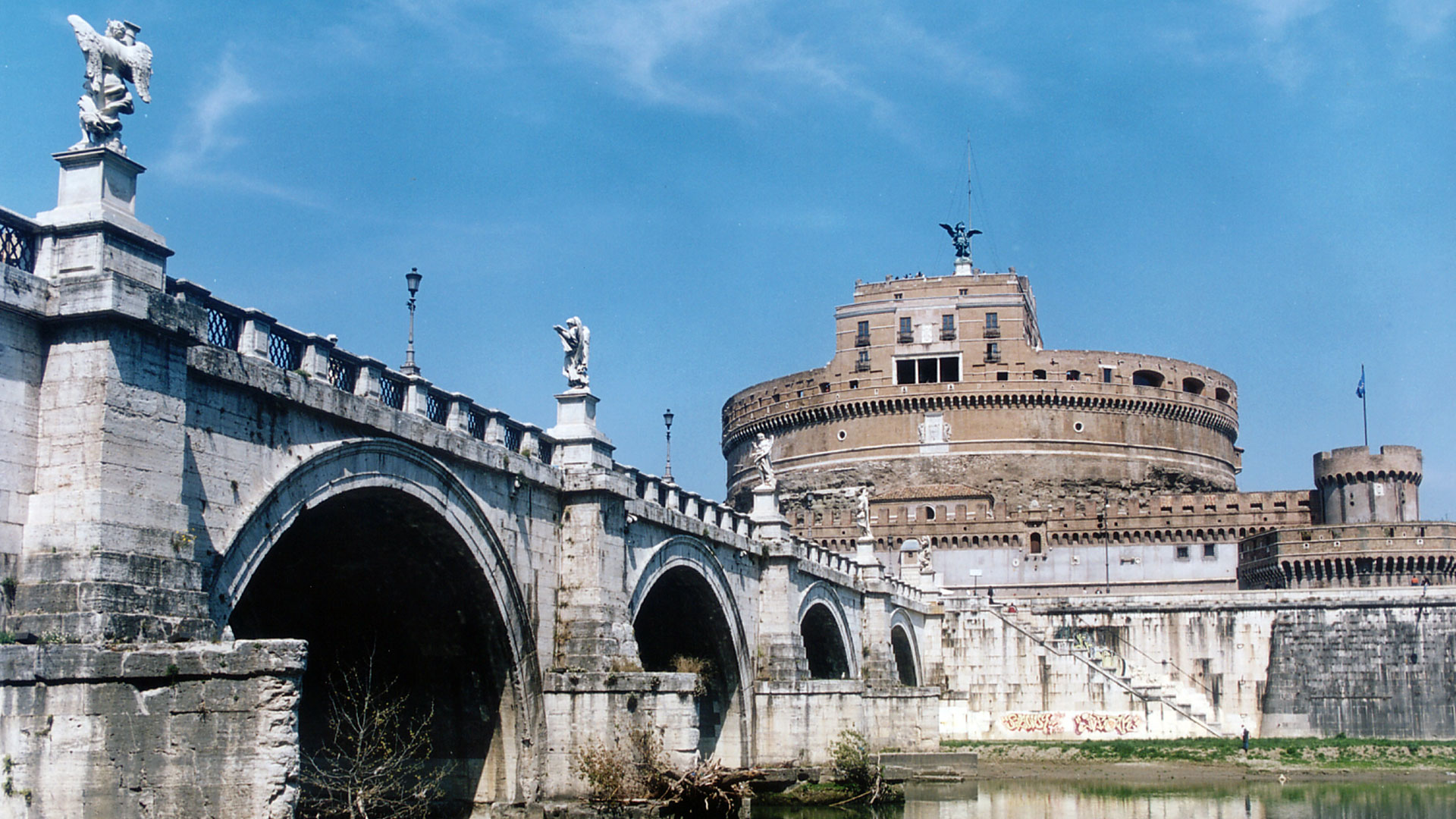
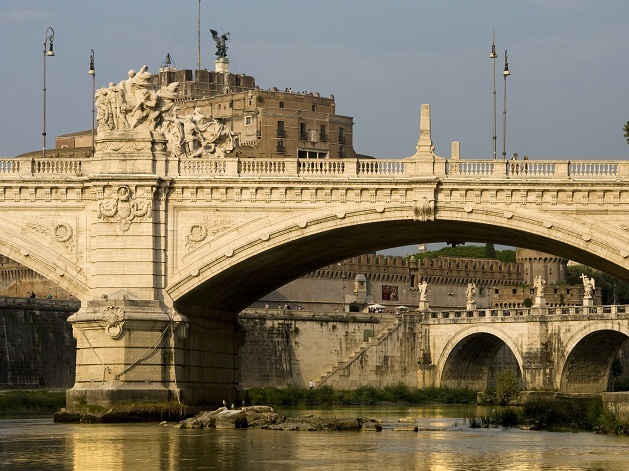
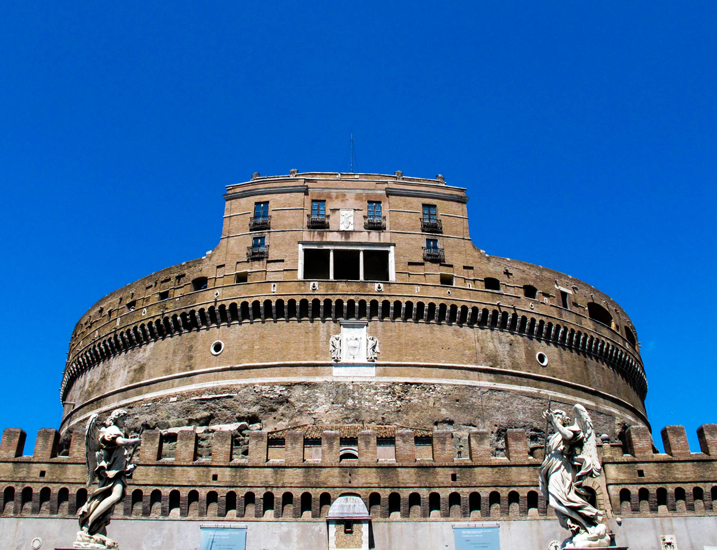
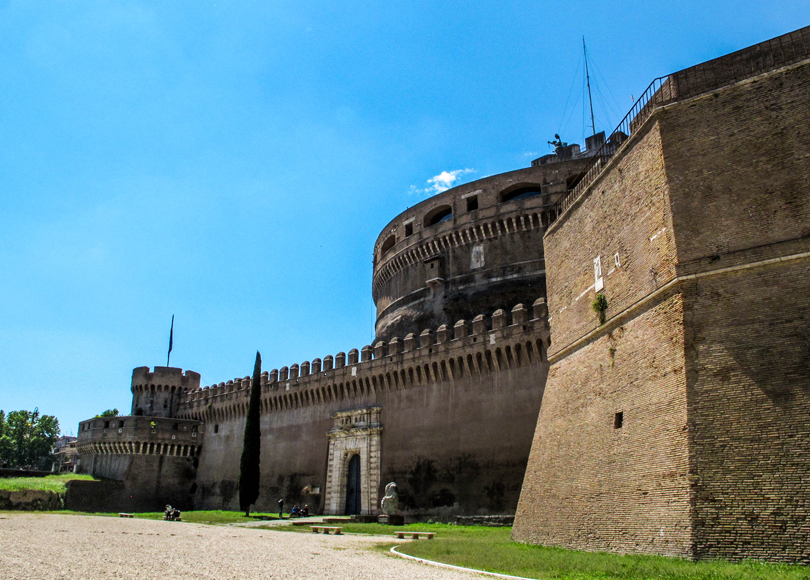
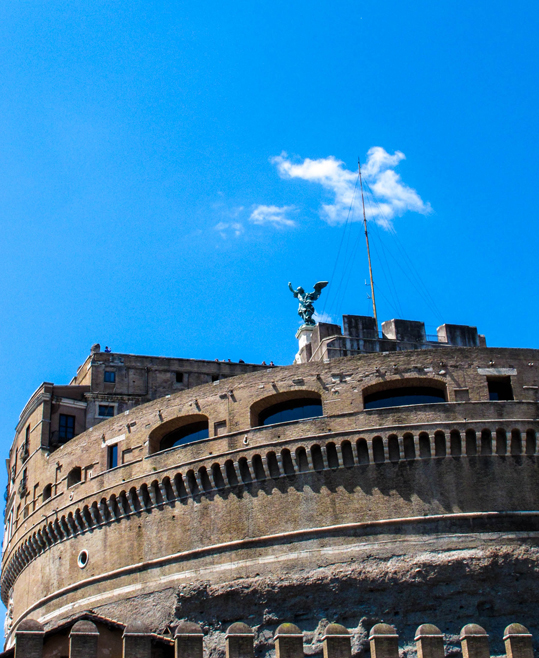
Located a few steps from St. Peter's Basilica in the Vatican, at the other end of Sant'Angelo Bridge, stands imposingly the Mausoleum of Hadrian. It is also known as Sant'Angelo Castle, a unique building because it can be considered, at the same time, a monument, an archaeological area, and a museum.
The castle's history, perceptible and stratified over the centuries in every corner, has made the monument an actual "museum of itself," which also houses numerous and heterogeneous collections acquired at different historical moments. These have enriched an already remarkably evocative visit route.
The mausoleum became a museum in 1925. Today it houses art and history collections traceable to three principal nuclei consisting of the Roman remains of the imperial mausoleum, the fortified castle, and the papal apartments.
The museum also boasts collections formed by sculptures, paintings, marble artifacts, weapons, furniture, and objects of various provenance, recovered in the excavation of the mausoleum's helicoidal ramp. The Museo Nazionale Romano of the Baths of Diocletian and the dissolved Museo Artistico Industriale donated other pieces. Some came from the antique market following the exhibitions to celebrate the 1911 World's Fair. It also preserves the memorabilia of the Italian Army.
At certain times of the year, the famous “Passetto di Borgo” or “er Corridore” (the corridor) – the fortified and elevated passage on the Mura Vaticane (Vatican walls), linking the Vatican to Saint Angel Castle - is open to visitors.
The corridor leads directly to the castle from the Palaces of the Vatican. Popes had an escape route to the fortress in times of particular unrest. The fortified structure also permitted control of the surrounding district. The strategic function of the “Passetto” appeared during the darkest, most mysterious, and most painful moments of Rome and the Church. Alexander VI Borgia used it in 1494, retreating to the Castello when Rome was overrun by the militias of Charles VIII of France. In 1527, Clement VII Medici (1523-1534) used the passageway to reach the Castello during the Sack of Rome at the hands of the Landsknecht mercenary pikemen under Charles VIII. The passageway’s significance, when its function as a means of defense ended at the close of the 16th century, then declined.
Fascinating fact: In 1527, Pope Clement VII grew a beard in mourning for Rome after the sacking. Some say he grew his beard as a disguise to facilitate his escape. All the Popes following Clement VII had a beard up to the time of Paul V.
Sant'Angelo bridge
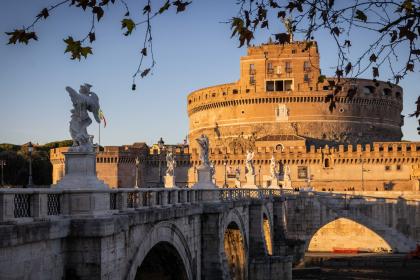
 Condividi
Condividi
The Basilica of St. Peter in the Vatican
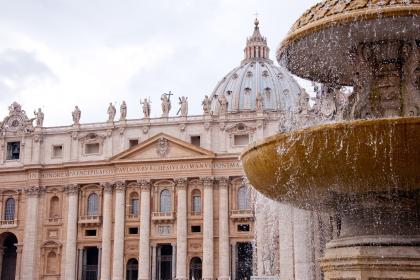
 Condividi
Condividi
The Passetto di Borgo
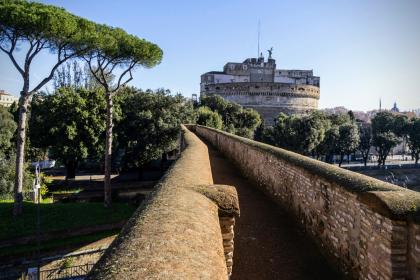
 Condividi
Condividi
Information
Open from Tuesday to Sunday from 9.00 to 19.30. (last admission 18.30).Closed on Mondays, 25 December, 1 January
From 13 October to 29 December 2025, special opening every Monday afternoon:opening hours from 14.00 to 20.00 (last admission at 19.00) and with a special ticket for only €5.
 Condividi
Condividi
Location
To find out about all accessibility services, visit the Rome accessible section.













































